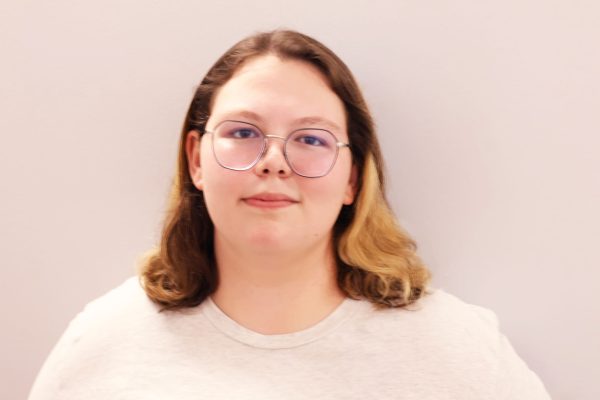Growing up queer in rural Nebraska, I never felt I had a place to be myself.
By day, I swallowed up the teachings of my outdated theology textbooks and bigoted priests who proclaimed the only place for gays was in hell with the abortitonists, murderers and divorced women. By night, I idolized the leaders of the queer revolution, the queens, the butches, the transsexuals and all the bright and bold activists who weren’t afraid to throw bricks for the right to live freely.
But I can still keenly feel now what I felt back then. I’m not enough to fit into either of the communities. I’m too argumentative and proud to silence myself for the community I came from, but I’m too scared to claim I belong among those who, for a lack of a better term, fought for their sexuality. I’m too gay to blend in, but not gay enough for my quiet to make a sound amongst the crew of the loud and proud.
I hate saying it this way, but I honestly don’t feel gay enough to belong.
Coming to Wayne State was the first time I’d had a queer community larger than the four or five other folks trying to fly under the radar at our all-girls catholic high school. There were inclusive clubs, college-funded drag performances, professors with pronouns in their email signatures and queer art in public spaces for crying out loud!
I quickly found my personal downside within this newfound queer haven, however. Turns out, being open to discussion about my gender identity and sexuality means that I’m also open to criticism.
That damned doubled-edged sword of vulnerability opened the door for other queer folks to question the validity of my identity. Can I really call myself transgender if I don’t want surgery? Can I really claim to be queer when others are working much harder than I to reclaim the term? Can I honestly call myself nonbinary without looking perfectly androgynous?
While the queer community has always had its public opposers and oppressors, it’s often the rejection and condemnation from those under the umbrella that cuts deepest. According to research from the Gender and Sexuality Psychotherapy Center, much of this condemnation stems from the rising prevalence of social media in queer spaces.
In the modern era of queer culture, young queer folk grapple with the Internet where many LGBT social media spaces have become breeding grounds for anger and self-hatred. Anonymous strangers are attempting to write the “rules” for being gay, turning a personal label and community into a ridiculously complicated game where no one understands the rules and no matter what you do, you will always be wrong.
Maybe it’s just because I’m new to the “publicly queer” scene, or maybe it’s the residual catholic guilt, but I started to internalize those criticisms at some point.
What I didn’t realize is that these feelings extend beyond my bubble. I had an unexpected wake-up call in the form of a late-night complaining session with a friend, someone I always thought seemed secure in their identity and relationships. Even though they had taken more steps towards a physical transition then I have, they still voiced the same feelings of loneliness and isolation from the larger queer community.
Mental Health America calls this idea “queer imposter syndrome”, the feeling that you are a fake intruding upon the community. For whatever reason, I find it incredibly comforting to have a name for what I’m feeling. It’s remarkably similar to how I felt when I found the term “nonbinary.” There’s real joy in knowing there are others out there like you, feeling your joy, your pain, your confusion.
I’m not a perfect gay. Hell, I’m nowhere close to being a perfect human being. I let stupid criticisms get to me. I let people who haven’t walked in my shoes try to put me in a box and stamp labels I don’t need onto me. If there were such a thing as a flawless, easy way to be queer, then it wouldn’t be true to the real purpose of the community.
To me, the queer label is one you give yourself as a person whose love lives outside the societal norm. I don’t need my love or my gender to be approved by society. I don’t need it to be approved by the lonely identity cops on the Internet or the other queer folks with the audacity to police fluid constructs like gender and sexuality.
If you, like me and thousands of other queer folks, find yourself asking if you are queer enough, try to remember why you’re asking yourself that in the first place. No one understands how to be you better than you do, so stop leaving your identity up to people it doesn’t affect.
Your love belongs to you, and you get to spend it however you see fit, whether that be by loving outside the status quo, finding joy in living beyond the binary or something we don’t even have the words for yet. We’re doing okay, we are enough.








